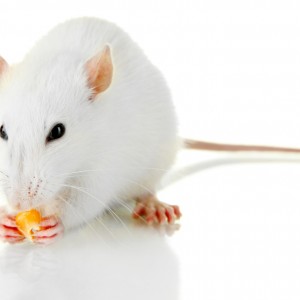 A new study from the University of Rochester may have revealed the real reason behind weight gain, which interestingly does not appear to be related to excessive food intake. Lead author Richard P. Phipps, Ph.D. believes weight gain or fat cell accumulation is not driven merely by behavioral processes, but is linked to a protein that mediates adipocyte formation. The findings of this study are available online in the December issue of FASEB Journal.
A new study from the University of Rochester may have revealed the real reason behind weight gain, which interestingly does not appear to be related to excessive food intake. Lead author Richard P. Phipps, Ph.D. believes weight gain or fat cell accumulation is not driven merely by behavioral processes, but is linked to a protein that mediates adipocyte formation. The findings of this study are available online in the December issue of FASEB Journal.
“Our goal is to prevent or reduce obesity and in this paper we’ve shown how to do this in principle,” said Phipps, the Wright Family Research Professor in the Department of Environmental Medicine at the UR School of Medicine and Dentistry, and a professor of Ophthalmology. “We believe that weight gain is not necessarily just a result of eating more and exercising less. Our focus is on the intricate network involved in fat cell development.” Phipps has begun work on an experimental anti-obesity medication, which is awaiting international patent approval. The university is seeking a partner company to help commercialize the drug, and hopefully bring overweight and obese patients a better alternative to diet pills.
Phipps and his team discovered the protein Thy1 can be a possible target of therapy for obesity, instead of prescribing a patient diet pills that do not act on a molecular and cellular level to solve the problem of excessive accumulation of fat cells. While this protein was discovered about 40 years ago, it has only been experimented with for other uses, as its true function was never identified. This makes Phipps’ study the first to identify Thy1’s ability to suppress adipocyte formation and accumulation. If a treatment is developed to restore Thy1 levels, weight gain may be curbed.
The study observed mice and human cell lines for an increased production of fat cells in the absence of Thy1 protein. The researchers found that the mice deprived of Thy1, and fed a high-fat diet gained more weight at a faster rate, compared to the mice eating the same diet, only with adequate Thy1 levels. Additionally, the fatter mice were found to have twice the normal amount of a particular biomarker called, resistin in their blood, which is a biomarker for obesity and insulin-resistance. Studies conducted on human fatty tissue from the abdomen and eyes exhibited the same results.
Phipps, the team, and key researcher Collynn Woeller, Ph.D., a research assistant professor of Environmental Medicine at UR, are also looking into the possible reasons why people are born with varying levels of Thy1, or if the amount changes over time and from exposure to certain environmental factors. Thanks to a new funding from the National Institute of Environmental Health Sciences, the team will be conducting experiments on obesogens like bisphenol A (BPA), flame retardants, and phthalates to try to find an answer to this question.


